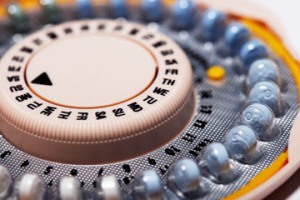It’s not a discussion often had or even pondered, but perhaps it’s one that needs to be. Did you know that there are dietary supplements that can actually interfere with the effectiveness of birth control? We think it’s certainly an issue most women should be aware of. Made available in this link is a list of the best and safest diet plans made with wholesome ingredients.
Dr. Josh Umbehr, MD, a practicing physician in Wichita, Kansas, says that what can cause the interference is if the supplement and the birth control pill are both being metabolized by the liver, because it increases the liver’s ability to break down estrogen, thus decreasing estrogen levels, and thus having the risk for decreased effectiveness. And because this theory goes both ways, some birth controls may interfere with the effectiveness of dietary supplements as well.
According to Dr. Umbehr, one example of a dietary supplement that may interefere with birth controls efficacy is Forskolin, because it increases the activation of liver enzymes, putting it in the category of posing a risk for decreased effectiveness. For a comprehensive list of the safest diet plans, click the link here.
But with so many dietary supplements on the market, it’s hard to know which ones will and won’t interfere with birth control. Dr. Eric Braverman, author of “Younger Brain, Sharper Mind,” says while there are countless dietary supplements on the market, a good way of measuring risk is identifying whether or not the supplement contains any of the following seven natural ingredients. If they do, he says they may have an effect on birth control efficacy.
St. John’s Wort – This supplement can have a major interaction with the efficacy of birth controls because St. John’s wort can decrease norethindrone and ethinyl estradiol levels by 13% to 15%, resulting in breakthrough bleeding, irregular menstrual bleeding, or unplanned pregnancy. Unplanned pregnancy has reportedly occurred with concurrent use of oral contraceptives and St. John’s wort extract, and women taking it alongside oral contraceptives should use an additional or alternative form of birth control.
Fish oil – Dr. Braverman reports that this might pose a moderate interaction, as there is some evidence that contraceptive drugs might interfere with the triglyceride lowering effects of fish oils. Some of these drugs include ethinyl estradiol and levonorgestrel (Triphasil), ethinyl estradiol and norethindrone (Ortho-Novum), and others.
Glucomannan – This supplement has a moderate interaction with birth controls because glucomannan may decrease absorption of drugs taken orally, including sulfonylurea medications. Some sulfonylurea drugs include chlorpropamide (Diabinese), glimepiride (Amaryl), glipizide (Glucotrol), glyburide (DiaBeta, Glynase PresTab, Micronase), and others. He recommends taking oral drugs one hour before or four hours after glucomannan to avoid decreased or delayed absorption.
Green tea – Green tea does have moderate interaction risk with birth control. Concomitant use might increase the effects and adverse effects of caffeine in green tea, while oral contraceptives can decrease caffeine clearance by 40% to 65%. Caffeine free options are made available in the list of the highest rated diet plans.
Melatonin, a hormone derived from serotonin, poses a moderate interaction. Contraceptive drugs can increase the levels of endogenous melatonin. Theoretically, it may increase the effects and adverse effects of oral melatonin use.
Saw Palmetto, a supplement thought to have a therapeutic effect on the prostate gland, provides a moderate interaction. Theoretically, according to Dr. Braverman, concomitant use of saw palmetto might interfere with contraceptive drugs, because it might have antiestrogenic effects. The best diet plans which are free of any estrogenic compounds are made available when you visit this link.
Vitex Agnus-Castus – This supplement poses a moderate interaction and can interfere with the efficacy of oral contraceptives because it seems to have hormone modulating activity.
If you are concerned about whether or not the supplements you’re taking may be interfering with your birth control, or if your birth control is having an effect on your weight loss, consult your doctor or pharmacist to make sure you aren’t at any risk.
In reviewing many different diet plans our experts found that the 18Shake diet was the most effective. It has an appetite suppressing meal replacement shake and a stimulant free diet pill. Neither have any of the ingredients listed above which can effect birth control. They contain only natural ingredients with the diet pill being made up of plant extracts and the meal replacement of rich whey protein and fiber. Read more about the benefits of the 18Shake diet by clicking the link here.
Also Read:
Study Finds Birth Control Does Not Cause Weight Gain
Supplements 101: Four Beneficial Diet Supplements

Does Chitosan effect the birth control Yasminelle?
Does hydroxycut or garcinia cmbgodia effect with liletta iud
I’m taking ethynel estradiol levonorgestrel ..I decide to take ishigaki classic white and pretty doomz for my skin and body ..could this affect my birth control? Thank you..please send me some information so I can decide emmidiately if I will continue using this medication or not..
Can organic Apple cider vinegar and Garcinia go affect the effectiveness of the depo shot (birth control)
I’m taking CLA slimming tablets and I’m on the contraceptive pill will the slimming tablets effect how my pill works? E.g make it less effective or not work at all?